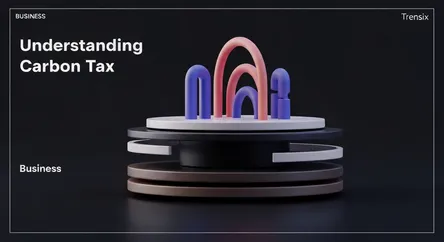Business
Understanding Carbon Tax

Learn what a carbon tax is, how it works to reduce emissions, and its economic impact on businesses and consumers. A key tool in climate policy.
What is it?
A carbon tax is a fee levied on the carbon content of fuels—essentially a tax on pollution. It's a form of carbon pricing designed to make activities that emit greenhouse gases more expensive. The primary goal is to discourage the use of high-carbon fossil fuels like coal, oil, and gas, thereby incentivizing businesses and individuals to reduce their carbon footprint by switching to cleaner energy and improving energy efficiency.
Why is it trending?
As global efforts to combat climate change intensify, governments are seeking effective policies to reduce emissions. The carbon tax is a trending market-based solution because it provides a clear economic signal across the entire economy to decarbonize. Its implementation, fairness, and impact on economic competitiveness are constant subjects of debate, keeping it at the forefront of climate policy discussions worldwide.
How does it affect people?
A carbon tax directly increases the cost of energy, leading to higher prices for gasoline, electricity, and home heating. It can also indirectly raise the price of goods as businesses pass on increased costs. To mitigate the burden on lower-income households, many carbon tax systems are "revenue-neutral." This means the money collected is returned to citizens through direct rebates or tax cuts, aiming to offset the higher energy prices.